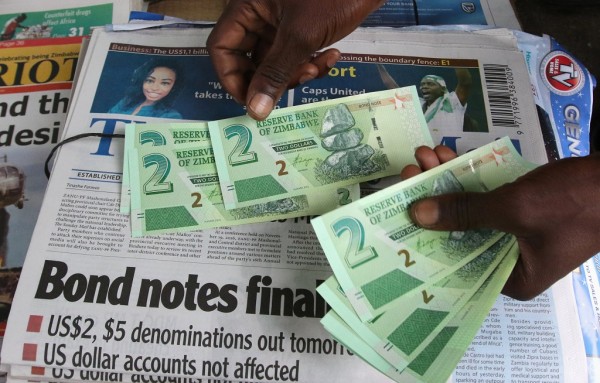Zimbabwe has faced a lot of disruption this year – from drought to Covid-19 pandemic the situation could not have been worse for the landlocked African country.
Most recently, in Pararehwa village, a 12-year-old boy Absolom Mugumburwa was discovered unconscious. The boy was malnourished and reportedly has not eaten food for several days.
His 18-year-old brother Washington had gone in search of some fruit and had no idea he would find his brother in such a state. Thanks to a neighbor, the boy avoided further complications.
The elder brother declared that they had not eaten for four days, and it was very unexpected from the neighbor to show up.
The boys are beneficiaries of the government’s scheme, but unfortunately, the latter has not distributed maize in this region from February. The boys’ father left his family and went to South Africa 3 years ago to seek greener pastures, but has not returned since.
The 33-year-old uncle reportedly abuses both brothers and takes away anything that is donated to the boys. The situation could not have been more difficult for brothers and Covid-19 made it harder to find a proper job.
The country currently needs over $300 million to feed eight million Zimbabweans. And there are other such cases where children are simply dying of starvation.
Other workers “wasting” their money
There is another category in the country that barely makes ends meet, and in search of additional money, they recklessly turn to the gambling industry which is legal in the country. The popularity of it is rapidly increasing. While some find it as an extra source of income, most people lost plenty of money during the pandemic. Most recently a representative from Spinia casino provider Matt Spears declared that according to the statistics available on the website, high traffic of people came from Zimbabwe, who are trying various games to somehow make a fortune.
The Covid-19 situation in the country
As of June 25, 2020, there are 530 people infected with coronavirus in Zimbabwe, of which 123 recovered and 6 died. Over the past day, the number of infected Covid-19 in Zimbabwe has increased by 5 people. The death rate is 1.13% of the total number of cases. An emergency regime has been introduced in Zimbabwe to date.
Drought also a huge problem
Years of drought in Zimbabwe has led to large losses in the yield of various crops, which has increased concerns about the onset of famine unprecedented in recent years in the country. It is one of the most affected and troubled countries in the world.
The current rainy season has not brought the expected downpours; hot and dry weather continues to stand throughout the country. As a result, the seeds planted in April did not receive the necessary moisture, and the fields were left without seedlings. The loss of corn, which is the main product of Zimbabweans, has already reached 50% compared to 2018, authorities noted. Zimbabwe’s annual corn requirements are 2.2 million tons.
Now the country produces less than half of the grain of the required volume to meet the demand from the population. According to UN experts, in August 2019, about a third of the Zimbabwean population, or more than 5 million people, were undernourished. This January, this figure increased to 7.7 million people, which is half of the total population of the country.
Since last August, the World Food Program (WFP), which operates within the UN, began in Zimbabwe distributing food to the most disadvantaged groups. According to Niels Balzer, deputy runway manager in Zimbabwe, 4.1 million Zimbabweans will need food assistance in the coming weeks. He expected peak of hunger to occur February-March this year, and it happened.
According to Niels Balzer, the international community needs to act quickly to prevent the onset of full-blown hunger in this African country.
Bread, Soap, Salt
Food shortages are accompanied by rapidly rising food prices and rising inflation in the Zimbabwean economy. Over the past six months, the price of a loaf of bread has increased 20 times. At the same time, there are big interruptions in the supply of bread to stores. Corn has risen three times over the same time. In half of the country’s markets, corn is currently unavailable. In the face of current difficulties, the Zimbabwean population is cutting back on food, selling livestock, trying to get loans, or borrowing to survive difficult times.
The government of the country, which supported the poorest groups of the population with cash payments, is forced to switch to the direct distribution of products due to a lack of currency. This, in turn, is associated with great difficulties in the collection, delivery, and distribution of food.
Zimbabwean President Emmerson Mnangagwa commented on the situation that, given the complexity of the situation, the government was considering adding bread, salt, soap, and vegetable oil to the list of subsidized goods. But it does not always work effectively. He said authorities had revoked licenses from stores that charge excessive fees for cornmeal. Now Zimbabwe urgently needs about 200 thousand tons of food to feed in the next three months people who are without this doomed to starvation.
Regional issue
In southern Africa, in addition to Zimbabwe, an alarming situation with food supplies has developed in Zambia. Now in this country, more than 1.7 million people are starving. Difficulties are combined with an acute shortage of drinking water, as rivers have dried up due to droughts in Zambia. This leads to widespread slaughter of livestock by farmers, as animals have nothing to drink.
The population of Zambia is 17.1 million. The drought also causes prolonged blackouts in both Zambia and Zimbabwe, which reduces the production of exported commodities. This leads to a drop in budget revenues of African countries and a shortage of currency for the purchase of products on world markets. As a result, both Zambia and Zimbabwe are now increasingly compelled to rely on the assistance of the UN, other international organizations, and charitable foundations to feed their inhabitants in the coming “hungry” months.














